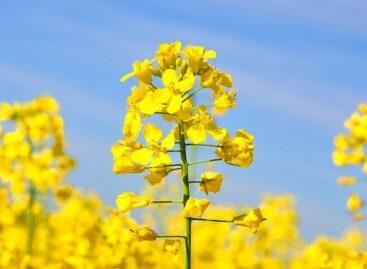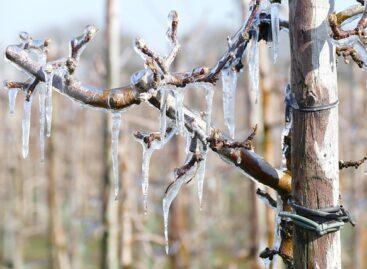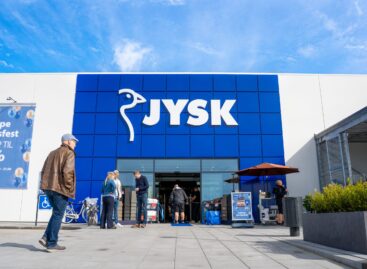The government is doing everything to prevent Ukrainian grain from entering Hungary again
The government is doing everything to prevent Ukrainian grain from entering Hungary again: from entering the market, from polluting our environment and from endangering the health of consumers and livestock raised by livestock keepers – the State Secretary for Agriculture of the Ministry of Agriculture (AM) stated on Thursday in Karcag.

(Photo: Pixabay)
Imre Hubai, Szatmári Kft., the Jász-Nagykun-Szolnok County Organization of the National Chamber of Agriculture and the Jász-Nagykun-Szolnok County Association of Farmers, spoke at the Grain Production Symposium and Professional Meeting that maintaining the ability to self-sufficiency is the key to the future and that agricultural policy and the upcoming reforms are subordinated to this. He called it a tense question what would happen to European markets if Ukraine joined the European Union in an accelerated procedure and thus the level of agricultural subsidies would fall to a fraction. In recent years, Ukrainian grain was able to destroy the markets of domestic farmers, he said. He added: in 2022, there was a historic drought, the country’s grain needs were not met, and due to the corn needs and the European Union’s free trade agreement, products arrived from Ukraine, which caused distortions in the grain market. Many people expect to have another opportunity and to be able to import the quality “that Ukraine is capable of producing” to Europe this year, he said, emphasizing: “this is not in our interest”, nor is it that agricultural subsidies are taken away from farmers or that they have to give up the achievements of the Common Agricultural Policy. He said that grain production is still a predictable branch of agriculture and that autumn-sown grain is perhaps the most certain to grow, but for example, spring frost damage has also damaged cereals. He reported that farmers had reported spring frost damage on about thirteen thousand hectares by May 31, he said. In his presentation, Imre Hubai also mentioned that the threats to agriculture – whether it is uncontrolled imported food, raw materials or persistent drought – can only be faced with coordinated professional and government work. During the growing season, but also beyond, the persistent water shortage that lasts for years causes increasing damage to ecosystems and the economy throughout Europe, year after year. It causes food price inflation and endangers the livelihood of farmers and the survival of ecosystems, he said.
The Hungarian government is prepared for the challenges, this year 4.7 billion forints of additional resources will be allocated to the implementation of the Drought Protection
Action Plan This has enabled the water sector to deliver an additional 150-200 million cubic meters of fresh river water to the landscape by making maximum use of the storage capacity of all available and refillable canals, reservoirs and backwaters on the edges of arable fields and at state-owned main works. He said: the water resources are now available in the rivers and as long as the resources allow, they will do everything they can to bring water to the corners of farmers’ houses – even by extending this action plan. He stressed: the Ministry of Agriculture is committed to supporting the work of farmers. They will do everything they can to ensure that sufficient quantity and quality of surface water is available this year as well, so that they can protect themselves against the harmful consequences of the drought – he added. F. Sándor Kovács, the Fidesz MP for the region, said that a crop classified as good or average in the region is considered excellent elsewhere. There has been much less rainfall in the recent period than before, but despite the difficult circumstances, the fields have been cultivated, sown and cared for, because “optimism (..) is ineradicable in Hungarian farmers”. Gábor Gyula Fazekas, the president of the Jász-Nagykun-Szolnok County Municipality, said: today, when climate change, global market competition, sustainability considerations and the war raging in our neighborhood pose new challenges to the sector, professional dialogue and innovation become even more important. He hopes that today’s symposium will contribute to the Great Plain – and with it the entire country – continuing to remain a decisive center of quality grain production on the domestic and international market. Tibor Szepesi, Mayor of Karcag (Fidesz-KDNP), said: Hungarian farmers must be competitive without sacrificing quality, sustainability and independence. “Whoever cultivates the land also serves the security of the country,” he said. Grain production and the food industry are not only an economic issue today, but also a strategic and national security issue. Therefore, it is particularly important that Hungarian agriculture receives increased attention from the government and that those actors who “understand and know the land” can participate in making decisions affecting the future. Zoltán Szatmári, the managing director and owner of Szatmári Kft. and Kunsági Malom Kft., which provided the venue for the event, said: they have been grinding with six mills in the Great Plain since 1993, exporting to ten countries, and their annual capacity is three hundred thousand tons. He announced: according to plans, they will hand over a bulgur factory at the end of the year.
MTI
Related news
Related news
KOMETA campaign: Put down your phone and experience Buona vita!
🎧 Hallgasd a cikket: Lejátszás Szünet Folytatás Leállítás Nyelv: Auto…
Read more >









